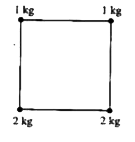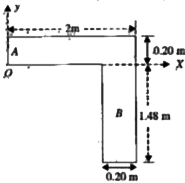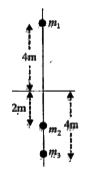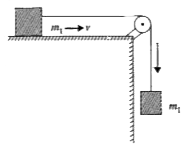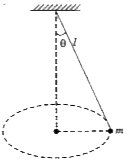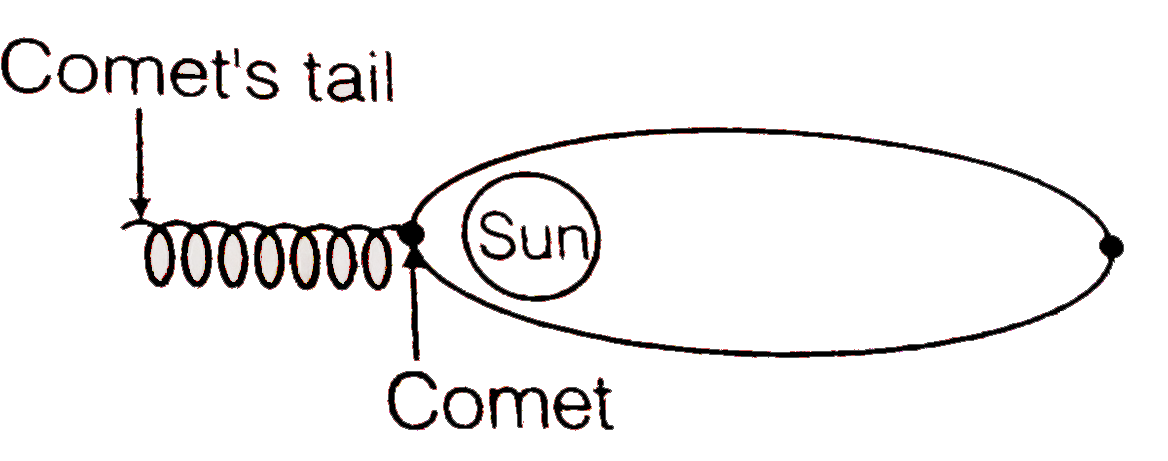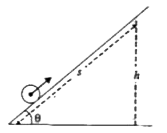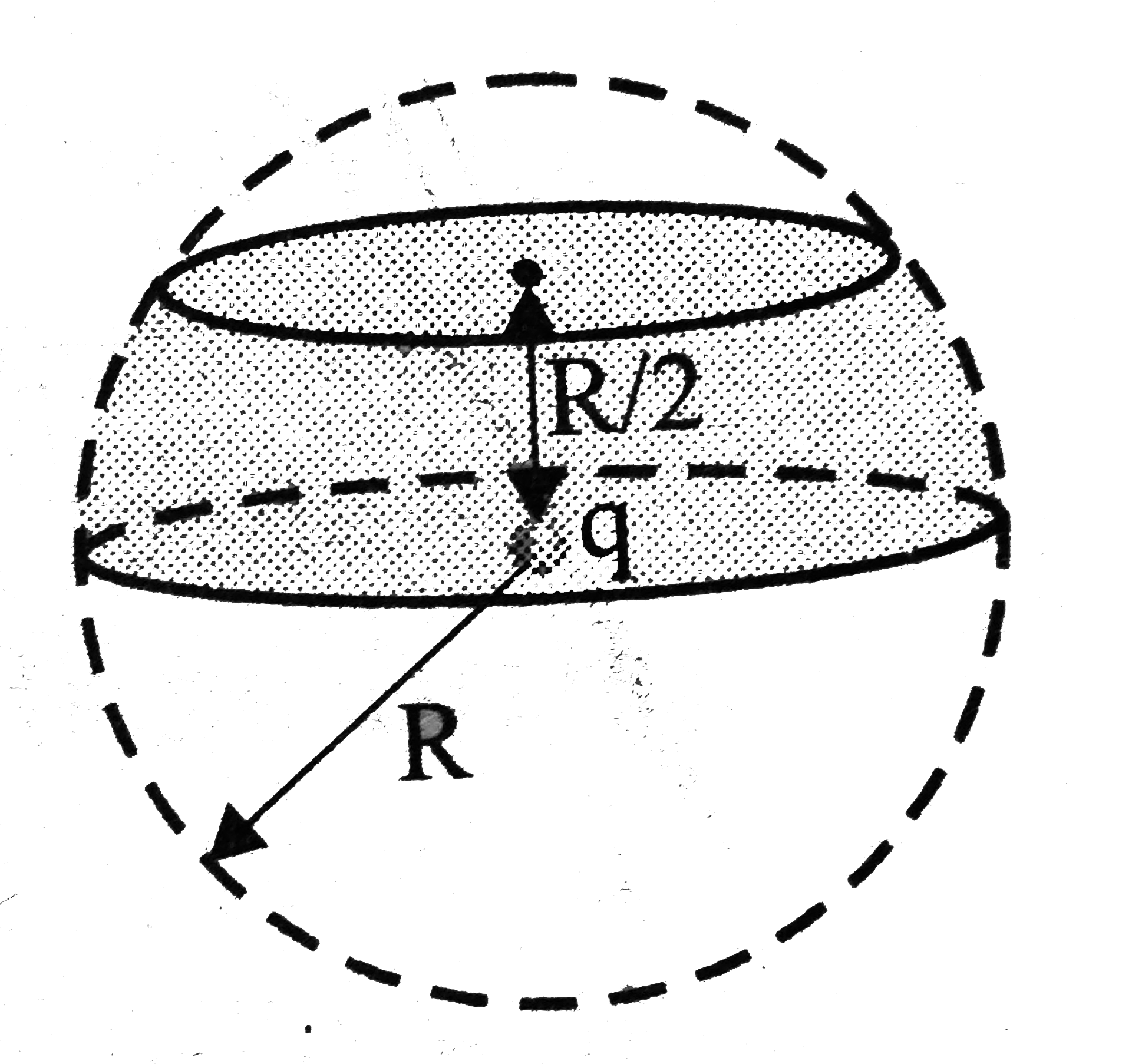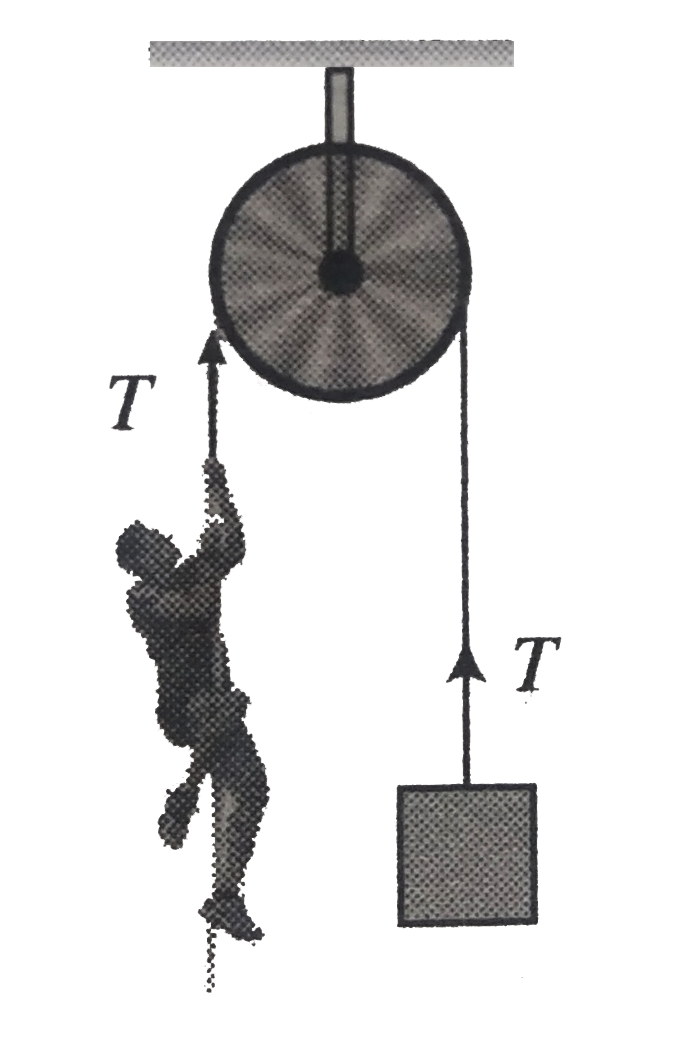MODULE 2 (SHORT ANSWER QUESTIONS) from S CHAND PHYSICS (ENGLISH) CIRCULAR MOTION for Class 11
| Class 11 | PHYSICS |
| Chapter | CIRCULAR MOTION |
| S CHAND PHYSICS (ENGLISH) | MODULE 2 (SHORT ANSWER QUESTIONS) |
| Medium | English |
| Academic Year | 2023-2024 |
Question 9
(1) Centre of gravity (C.G.) of a body is the point at which the weight of the body acts,
(2) Centre of mass coincides with the centre of gravity if the earth is assumed to have infinitely large radius,
(3) To evaluate the gravitational field intensity due to any body at an external point, the entire mass of the body can be considered to be concentrated at its C.G..,
(4) The radius of gyration of any body rotating about an axis is the length of the perpendicular dropped from the C.G. of the body to the axis. which one of the following pairs of statements is correct ?View SolutionQuestion 12
A disc rotating about its axis with angular speed is placed lightly {without any transnational push) on a perfectly friction-less table. The radius of the disc is R. What are the linear velocities of the point A, B and C on the disc shown in the Fig. B 7:2.60 ? Will the disc roll in the direction indicated ?
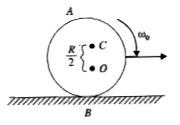 View Solution
View SolutionQuestion 65
Which of following statements are correct ? l (a) Centre of mass of a body always coincides with the centre of gravity of the body
(b) Central of mass of a body is the point at which the total garvitational torque on the body is zero
(c ) Couple on a body produces both trasnlational and rotation motion in a body
(d) Mechinical advantage greater than one means that small efforts can be used to lift a large loadView SolutionQuestion 68
The coordinates of the centre of mass of a system of three particles of masses 1 mg , 2 mg and 3mg are (2 ,2 ,2) . The coordinates of the fourth particle of mass 4 mg to be positioned so that the center of mass of the four particles system is at the origin of the three – dimensional rectangular coordinate system areView SolutionQuestion 79
The initial angular velocity of a heavy flywheel rotating on its axis is w0. Its angular velocity decreases due to friction. At the end of the first minute its angular velocity is 0.8ω0. What is its angular velocity at the end of third minute, if the frictional force is constant ?View SolutionQuestion 92
A body falling vertically .downwards explodes into two equal fragments when it is at a height of 200 m and has a downward velocity of ,6 just after the explosion one pf the fragments is seen to move .downward with a velocity of 8ms−1 .Calculate the position of the centre of mass of the system 5 s after ,the explosion.View SolutionQuestion 104
Fig. shows a uniform disc of mass 1 kg and radius 0.2 m mounted on an axle supported in fixed frictionless bearings. A light string is wrapped around the rim of the wheel. A constant downwards pull of 2 kg wt. is exerted on the string. What is the angular acceleration of the wheel and the tangential acceleration of a point on the rim ?
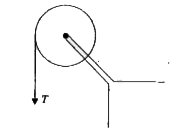 View Solution
View SolutionQuestion 105
A uniform disc of mass of 0.50 kg and radius 0.20 m lies on one side initially at rest on a frictionless horizontal surface. A constant force of 3 N is then applied tangentially at its perimeter using a light weight cord wrapped aroutid its edge. What is the (i) angular acceleration (ii) angular velocity and angular displacement after 2s ?
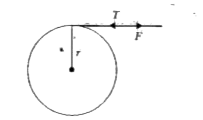 View Solution
View SolutionQuestion 108
A constant torque of 20 Nm is exerted bri a pivoted wheel for 10 seconds during which" time' the angular velocity of the wheel changes from 0 to 100 rpm. When the external torque is removed'it is stopped by friction in 100 s. Find (i) the MX of the wheel and (ii) the fiictional torque ? View SolutionQuestion 113
A flywheel of radiiis 10 cm mounted so as to rotate about a horizontal axis through its centre. A string of negligible mass wrapped round its' circumference carries' a mass of 200 gm attached to its free end, when let fall the mass descends through 100 cm is 5 s. Calculate the angular acceleration and the moment of inertia of the flywheel.View SolutionQuestion 122
Two particles of masses m1andm2 are joined by a light rigid rod of length r. The system rotates at an angular speed ω about an axis through the centre of mass of the system and perpendicular to the rod. Show that the angular momentum of the system is L=μr2ω where μ is the reduced mass of the system defined as μ=m1m2m1+m2View SolutionQuestion 125
A small body of mass 100 g moving with a velocity 2 m/s is strikes a solid cylinder of mass 2 kg and radius 20 cm. The cylinder is initially at rest and is mounted on a fixed horizontal axle that passes through the centre of mass. The line of motion of the small body is at a perpendicular lar distance of 15 cm from the centre of the cylinder. The small body strikes the cylinder and adheres to its surface. What is the angular speed of the system just after the collision ? Assume there is no friction.
 View Solution
View SolutionQuestion 130
A heavy circular disc is revolving in a horizontal plane about the centre which is fixed. An insect of mass 1nth that of the disc walks from the centre along a radius and then flies away. Show that the final angular velocity is nn+2 times the original angular velocity of the disc. View SolutionQuestion 132
An oxygen molecule has a mass of 5.3×10−26 kg anda moment of inertia of 1.94×10−46kgm2 about an axis passing through the centre and perpendicular to the line joining the two oxygen atoms. The molecule is moving at a speed of 500 m/s and its rotational kinetic energy is two-thirds its translational K.E. Calculate its angular velocity.View SolutionQuestion 134
A bucket of mass 8 kg is supported by a light rope wound around a solid wooden cylinder of mass 12 kg and radius 20 cm free to rotate about its axis. A man holding the free end of the rope, with the bucket and the cylinder at rest initially, lets go the bucket freely downwards in a well 50 m deep. Neglecting friction, obtain the speed of the bucket and the angular speed of the cylihder just before the bucket enters water.View SolutionQuestion 135
A metre scale of mass 100 gm is suspended freely at its end. It is pulled aside and swung about a horizontal axis with an angular velocity 5 rad/s. Calculate the height to which the centre of mass of the scale rises above its lowest position, assuming that there is no friction and air resistance. (given : length of meter scale used = 1m )View SolutionQuestion 137
A half metre scale is pivoted about a horizontal fiictionless pin through one end as shown in Fig. The scale is released from rest in a vertical position. At the instant when the scale is horizontal what is (i) its angular speed and (ii) the magnitude of the angular acceleration.(Given length of rod =1/2 m)
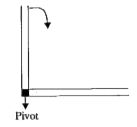 View Solution
View SolutionQuestion 138
A uniform disc of radius r and mass m is free to rotate on a frictionless pivot through point P on its rim as shown in Fig. The disc is at rest and is released from the position (1). (i) What is the speed of the centre of mass when the disc reaches the position (2). (ii) Also rind the speed of the lowest point on the disc in the dashed position.
 View Solution
View SolutionQuestion 143
A uniform solid sphere rolls on a horizontal surface with a linear speed of 10 m/s. It then rolls up a.plane inclined at 30° to horizontal. What is the height upto wlrich the sphere rises ? (See Fig.) Assume that the surface is frictionless. Also calculate the distance travelled by the Fig. sphere on the inclined plane ?
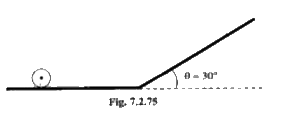 View Solution
View SolutionQuestion 145
A wheel of moment of inertia I1 rotates about a vertical frictionless axle with an angular velocity ω1. A second wheel of moment of inertia I2 and initially at rest drops onto the first wheel. The two wheels attain a common angular velocity of ω2 . (a) What is the value of ω2 ? (b) What is the ratio of the initial to the final rotational energy ?View SolutionQuestion 147
One end of a string is tied to a rigid support attached to roof and the other end is wound around a uniform wheel of radius r and mass m. The string is kept vertical and the wheel is released from rest. As the wheel descends show that (i) the tension in the string is one-third the weight of the wheel, (ii) the magnitude of the acceleration of the centre of mass is 2g/3 and (iii) the speed of the centre of mass is (4gh/3)1/2
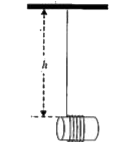 View Solution
View SolutionQuestion 148
In Fig. 98 m and H=98 m. A rigid uniform sphere starts from the point A from rest and rolls down the track without slipping and reaches the horizontal right hand end B, What is the distance to the right of the point C at which the sphere strikes the horizontal base line ?(given h=29.4)
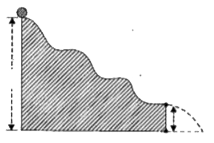 View Solution
View Solution
All Exercises from S CHAND PHYSICS (ENGLISH) Class 11 PHYSICS CIRCULAR MOTION
- MODULE 1 (CONCEPTUAL SHORT ANSWERS QUESTIONS WITH ANSWERS )
- MODULE 1 (FROM ANGULAR VELOCITY)
- MODULE 1 (FROM BANKING OR RAILS AND ROADS)
- MODULE 1 (FROM CENTRIPETAL FORCE)
- MODULE 1 (LONG ANSWER QUESTIONS)
- MODULE 1 (SHORT ANSWER QUESTIONS)
- MODULE 1 (VERY SHORT ANSWER QUESTIONS)
- MODULE 2 (CONCEPTUAL SHORT ANSWERS QUESTIONS WITH ANSWERS)
- MODULE 2 (FROM ANGULAR MOMENTUM - CONSERVATION)
- MODULE 2 (FROM CENTRE OF MASS)
- MODULE 2 (FROM EQUATIONS OF ROTATIONAL MOTION)
- MODULE 2 (FROM MOMENT OF INERTIA, TORQUE)
- MODULE 2 (FROM ROTATIONAL KINETIC ENERGY , WORK ,POWER)
- MODULE 2 (LONG ANSWER QUESTIONS)
- MODULE 2 (SHORT ANSWER QUESTIONS)
- MODULE 2 (VERY SHORT ANSWER QUESTIONS)
- SOLVED EXAMPLES

